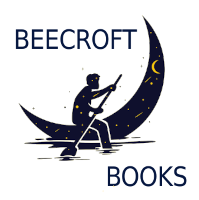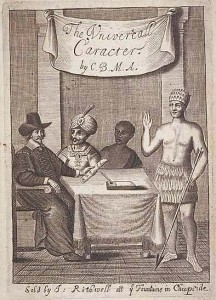Write On – Strangers from the subconscious
Having got your big idea and decided how long your story is going to be, it’s time to actually get started. A lot of people say they start with characters, but I think the idea must come first.
For me, character creation starts with three things. The character’s role in the story, their name and their face.
The character’s role in the story.
You don’t know whether you want a hardened gunslinger or a sensitive poet until you know what the story is roughly going to be about. It’s no good having a psychic with a neurotic horror of dirt in a story about off-road motorsport, where nothing vaguely supernatural happens at all. He’ll spend all the time in the bathroom washing, and the reader is going to be very disappointed when after all that build up about how he can see ghosts there is nary a ghost in the book.
There’s no point in creating a character who cannot fit in the story you’re telling. Create a gay recluse by all means, but then don’t expect him to be of any use as the lead character in a story about a rabble-rousing ladies man.
However, once you know that you’re writing a story in which you need a gardener and a police officer, or a were-dragon and a were-crocodile, you can begin to create those characters in a way that will allow you to tell the story, but will still provide some unexpected complexity and interest.
Their name.
A hero’s name is very important. It will tell you a great deal of information about them in a single concentrated shot. Considering what to call them will force you to ask yourself what nationality the MC is, what kind of class he is. Bert Smith is going to be a very different person from Algernon Smythe, for example, and both of them are likely to be quite different from Bogdan Sterescu. (Substitute names and examples from your own country’s varied levels of class as you like.) In choosing a name, you choose a class, and with it a lifestyle for your character. Alternatively, in considering a class and position in society, you limit your choice of name.
I have a tendency to go through at least three or four changes of name for each main character, while their personality coalesces around the name. For me, a John is a more straightforward, honest name than, for example, a Eustace. A Frank is even more so. But Roy may have some overbearing characteristics to go with his kingly name, and Victor is even worse, since the name has been used for so many villains.
Once you’ve rolled through all the possibilities and selected a name to stick, you’ve already got a basic idea of what kind of person that name belongs to, because the name brings its own preconceptions. Though you can, of course, choose to undermine those preconceptions – have an Igor who doesn’t say ‘yeth marther’ or an Anna who is an old man (it’s a Saxon king’s name after all.)
Their face.
A good shortcut for filling in the ‘what do they look like’ boxes on character sheets is to page through a bunch of pictures of actors on Google and pick one who looks roughly how you imagine your character to look. Once you’ve done this, you’ll find that hir face immediately gives you a feeling of what hir character might be like – whether he or she is kindly or incisive or suspicious, or wary – something you can use for a foundation.
When you meet a new person, you automatically make many assumptions about them on the basis of what they look like, so it’s a completely natural and instinctive process to create a character on the basis of a picture.
These three things will be enough to give you a feeling for the character, which can then be expanded into further facts.
If you Google for character creation sheets, you’ll find a whole load of options for sheets to fill in, detailing things like height, weight, distinguishing features, birthdate, occupation and so forth. These are all good things for you to know about your character. From your instinctive understanding of their character, drawn from their face, occupation and name, you can begin to build them a backstory. Where were they born and brought up? What formative events shaped them? What were their parents like? Did they have any siblings? What are their relationships with these people now?
For the purposes of the plot, each character needs to have an aim/goal/problem which drives them. You need to pick one for them which will cause them to act, but which will also be in keeping with the rest of their personality. The lawyer will have a strong drive to make sense of things – to put them in their correct boxes and order the world. The were-dragon might want to possess all the shiny things – maybe that’s why they became a famous thief.
For me, character creation is not a science but an art – a process of accretion and discovery, which happens by itself once you start to write down a character’s history. But there are many things you can also do to help it along.
You can base a character on someone you know. It’s not a good idea to just lift a person from real life and put them in a book – they might recognise themselves and be insulted/disturbed enough to sue you. But you can certainly use your knowledge of how their character works to build one very like it.
You can base a character on yourself. Again, don’t take the whole cloth and use it – that’s usually quite boring. Pick parts of yourself you understand well and recombine them. Pick other parts of yourself and discard them, replacing them with something different. Now see if the differences can be reconciled with the samenesses – you might have created someone with fatal flaws or complexities, or a split personality, or fascinating contradictions.
You can base a character on a philosophy. Ie, perhaps your character’s defining trait is that he totally believes in Christianity/Marxism/Capitalism/the belief that ‘what does not kill you makes you strong’. How would this philosophy shape a person, if they took it seriously and tried their hardest to live up to it?
You can look up the Myers-Briggs personality charts and pick a personality from there. Is he an INTJ? Is she an ESFP? How would that manifest itself in a were-crocodile? Would her wish to always be around other people be a drawback given her work as a priestess of Set, or would it just lead to her throwing the best orgies?
You can draw a half a dozen Tarot cards and with the aid of a handful of website telling you how to interpret them, you can come up with a psychological sketch of your character – tweaking it as necessary to fit into your story. Is he the Fool, suspended between decisions, or the Empress, looking for rulership and harmony in the world?
You can get hold of a couple of role-playing games and roll a few main characters with their character generation systems.
If none of these work, I also have a set of cards and a book which I can highly recommend, called The Writer’s Brainstorming Kit by Pam Cutcheon and Michael Waite, which has 50 different cards so you can pick six or seven character traits at once and see if you can find a way to reconcile them into one balanced character. Remarkably, dealing traits at random often results in something you can work with – because your subconscious figures out how they could work together as one rounded human being. And because these come at random they’re often stranger and more interesting than what you might come up with when you’re being all rational and super-ego driven.
Once you have your main characters, it’s time to think about your setting/world, and that’s another separate question I’ll come to next week in Write On – world building.

